2 min read
Gospel-Centered from the Start
“Let us hold unswervingly to the hope we profess, for He Who promised is faithful…Jesus Christ is the same yesterday, today, and forever.” (Hebrews...
Alcohol has dominated Jill Connor's life for the better part of 15 years. She has been through five separate treatment centers, but her sobriety never stuck. In part 1 of this interview, she shared the struggle. In this half, she discusses what she believes to be different this time around and the tools she is learning in UGM Women's Recovery. The interview picks up where she left off - relapsing on her first overnight pass and the accountability meeting required to re-enter the program.
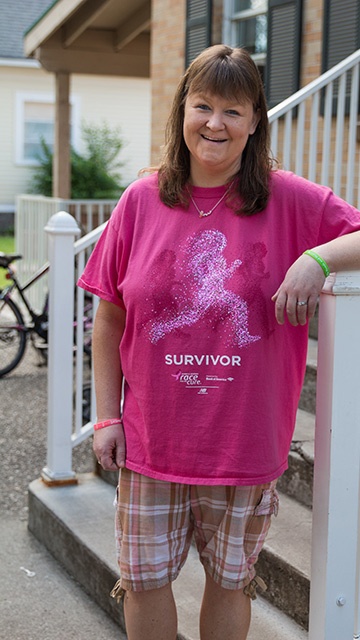 UGM: What was that accountability meeting like for you?
UGM: What was that accountability meeting like for you?
Jill: It was just humbling. I totally was like, ohmigosh, I can't believe this happened. I'm so appreciative to be at Anna Ogden Hall. The waiting list is huge, and I don't want to lose my bed. I want this program. I want to complete it. I want to be sober. I want to LIVE. If I don't become sober, I won't live. It was all regret and sorrow, just humbling.
I'd been at the Crisis Shelter for a week - I was so nervous, I was almost throwing up on the way here. I came in and I sat on the bench, and this peace came over me like, "I'm home." It was such a blessing. They welcomed me back. Nobody had any expectations, any judgment. They were just, "We're glad you're back."
UGM: What has your journey looked like since that time?
Jill: There’s times that are still tough. I think cravings will always be there with alcohol being everywhere. You can’t pretty much open your eyes and blink without seeing it somewhere.
But by learning to use the tools and to play the tape out…Kat, one of my friends here, she talks about that – "playing the tape out" – to think about, OK, you take a drink and it’s fun for a minute but then what’s going to happen? You’re going to lose your bed here. You’re going to go back to what you were doing. You have no job. Nobody’s going to hire you the way you are. You’ll be living with your dad if he lets you back in or else you’ll be homeless. So, just playing it out, not just that first drink, “Oh that’s going to taste so good.”
UGM: Because that’s the part that’s appealing?
Jill: Oh, yeah, the taste and that feeling of warmth that just runs through you with the first drink and the calmness, I think. So we learn tools here to achieve that calmness, to do breathing exercises, to pray.
There was one time a couple months ago, I was with my dad and I went into a convenience store and skipped the alcohol aisle, so that I wouldn’t go by it or anything, and right on the end cap was the stuff that I always drink, and I was just…I mean, I felt the panic come over me. All I had to do was reach and grab it. I could’ve hid it in a sack, and my dad wouldn’t have known, and I just said, “Please, Jesus. Please, Jesus.” And really, that’s all it took, and I was OK. You have to be prepared I think. A lot of people leave here thinking they are prepared, but you have to have a plan because, like I said, it hits you so fast.
UGM: What happened when you relapsed before? And how is this time different?
Jill: I just went right back to my old ways, hanging out with the same people. I didn’t have the thinking right because I would relapse and then I would start going on myself, “Oh you’re such a loser. You’re never going to get this right. What is wrong with you? You know, why is this happening to me? Why am I the only one in the family? I wasn’t abused. I had a great childhood. I can’t figure it out.” And here, we’re really learning to get to the core of…the core wound is what they call it.
And, of course, a lot of my previous rehabs were 30-day programs. You can’t do a lot in 30 days to be honest. They just herd you in and herd you out, that’s how it felt. There’s no closeness with the counselors. You didn’t feel like they really cared about you. It’s just their job. Here, you feel like it’s a big family.
UGM: You said something that really struck me. If you continued to beat yourself up about what a loser you were…
Jill: Oh, yeah, then I just want to drink. I don’t want to keep feeling so bad on my little pity party, so I’ll just drink and it will make me feel better. Then you feel worse after drinking. Then I get to the point of illness, physical illness, and then it’s like I’m drinking for life almost and it’s a horrible roller coaster, and I had to get off of it.
UGM: Tell me about the tools you're learning in recovery.
Jill: I have to quit blaming my mom and brother’s death. I mean, sure, things like that are going to happen in life. Other people get through it without drinking. It was my coping mechanism at the time, and it just spiraled horribly. I need new methods of coping.
UGM: You mentioned being prepared. What does that look like?
Jill: When I get into relapse mode, it just happens. I just literally have it in my hand, and it’s like ohmigosh, what did I do? I don’t have a big lead up into it, like I’m really sad or depressed. It really doesn’t happen like that with me, and that’s what’s really scary for me.
I have to be aware totally when I leave the house, when I go anywhere…For a long time, for months, I was on green slips here. I couldn’t go anywhere alone. (Green slips have to be signed by a counselor – what time you’re leaving, who you’re going with, and what time you’ll be back. So you’re totally accountable.) It wasn’t safe for me to be on my own outside the house.
My counselor said, “You know, Jill, we can put you on green slips until the day you walk out of here, but we’ve got to clip your wings sometime.” So she had a suggestion where we maybe go to the grocery store – 'cause she said that thing where I just pick it up and it’s such a habit for me. I’ve done it for so many years. She said, maybe we can go, pick it up, put it in your cart, and she said maybe you can talk to it. Maybe you can just say, “Hey, I really want to buy you right now, but this is not for me anymore. I’m done with you. You’ve ruined my life.” So every time I go into the store, she would want me to do that and get into that habit instead of just picking it up. I thought, they’re going to go, “Here comes the crazy lady again - talking to the alcohol."
UGM: Does your faith play a part in this?
Jill: Every morning, I get up, and I have to surrender – my heart, mind, body and soul – and I have to die to my flesh. I have to say, "I want to follow your path today. Please fill me with your Holy Spirit." And if I don’t, I start being judgmental and critical and I’m an icky person. With the Holy Spirit convicting me when I do that, I keep my mouth shut a lot more. I ask for a guarded tongue. I ask for compassion. So, yes, Jesus has made a ton of difference.
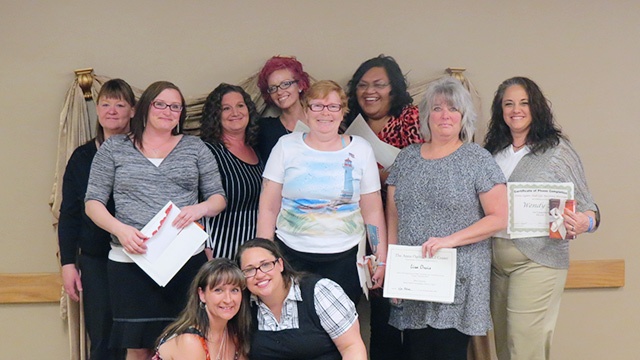
"That is the big thing. You have to get right back up. You have to know that you are forgiven by God and that you have another chance. All he wants you to do is just move forward."
For more on recognizing and combating addiction, check out the Counselor's Couch segment below.

2 min read
“Let us hold unswervingly to the hope we profess, for He Who promised is faithful…Jesus Christ is the same yesterday, today, and forever.” (Hebrews...

9 min read
To celebrate 75 years of serving the Inland Northwest, we are spending the year remembering our history and the faithfulness that built us and...

2 min read
In 2026, Union Gospel Mission Inland Northwest is approaching our 75th Anniversary! This is a milestone that invites gratitude and reflection, and...
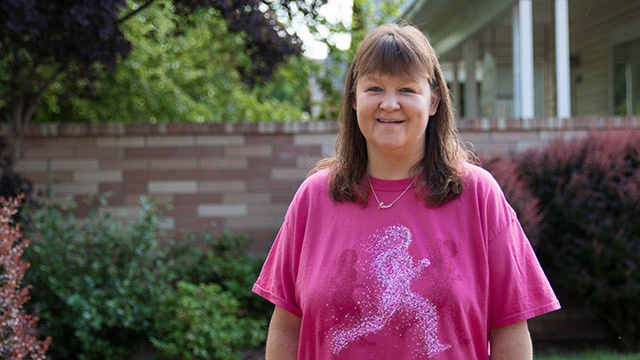
Editor's Note: Jill lost her battle with alcoholism on August 28, 2018. Relapse on Repeat By Barbara Comito, UGM Director of Marketing &...
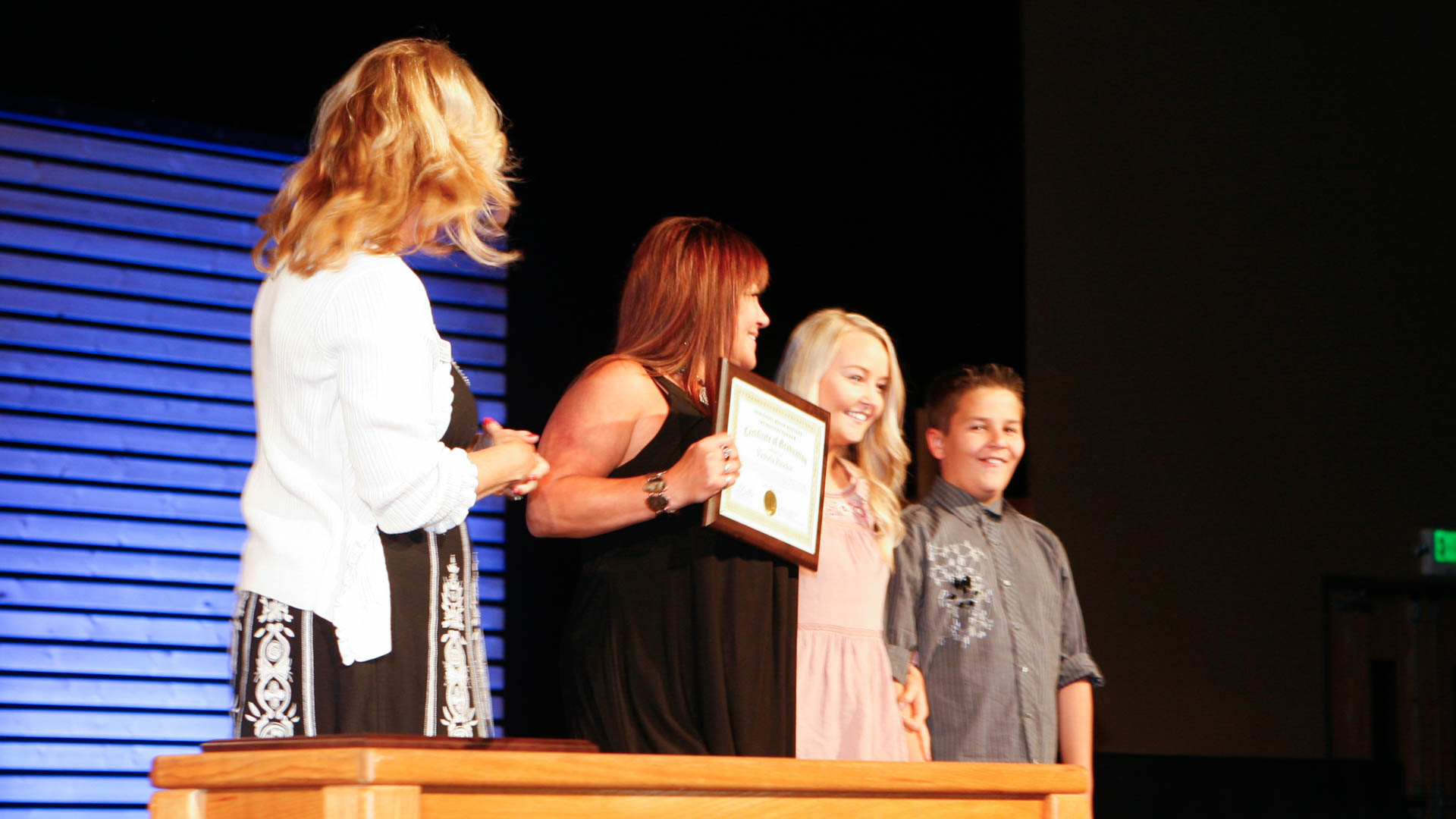
“I never fully surrendered.” Vickie Proctor finished UGM Women’s LIFE Recovery in 2019. She got a job, she moved out, she was honored at Commencement.
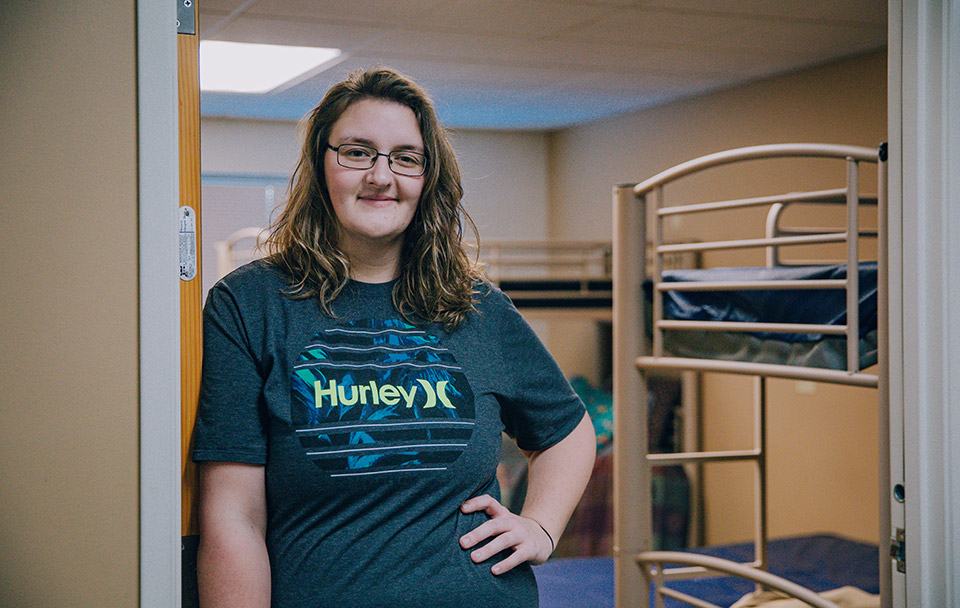
“I know that no matter what I throw at them, they are going to support me and love me and speak truth into my life.” - Laura, UGM Crisis Shelter ...